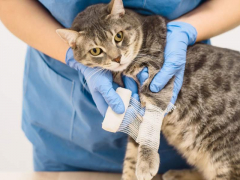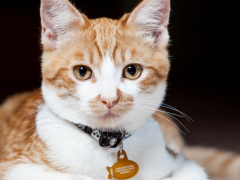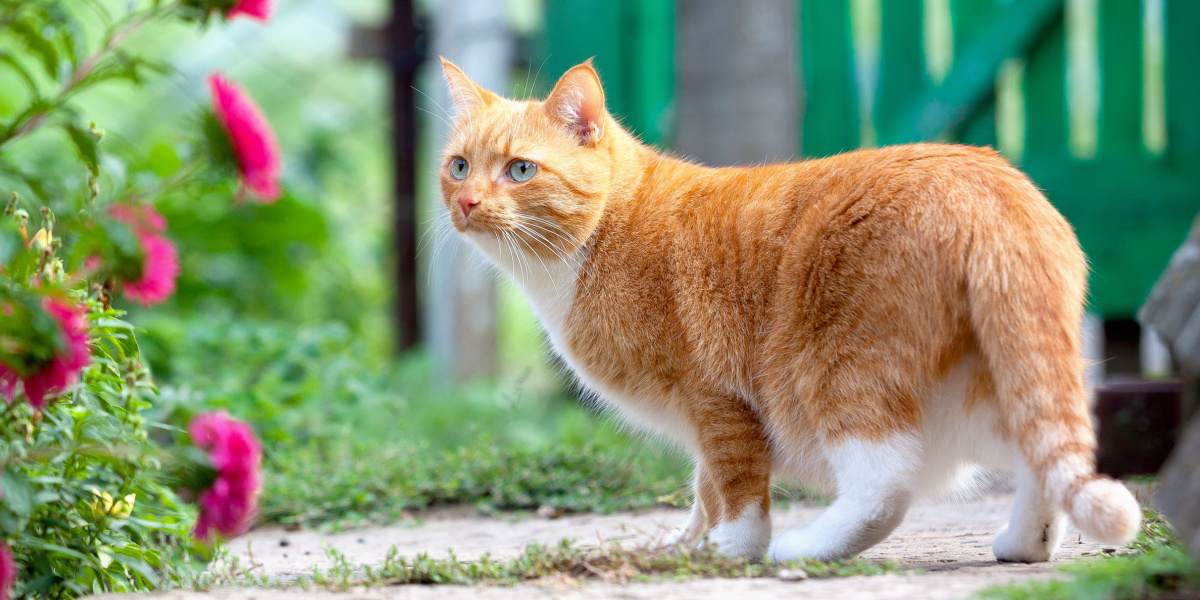
As responsible cat owners, it’s important to be on the lookout for any unusual signs or behaviors from our pets. For instance, if you have a female cat, and she is not neutered, you may be wondering how you can tell if a cat is pregnant. If your female cat is not neutered, and is in contact with an unneutered male or goes outside, then they have a high chance of becoming pregnant.
This article will cover everything you need to know about pregnancy in cats, including the typical signs of pregnancy, and what to do if you think your cat is expecting.
Also Read: Cat Pregnancy: Behavior, Timeline, and Signs of Labor
At What Age Can Cats Get Pregnant?
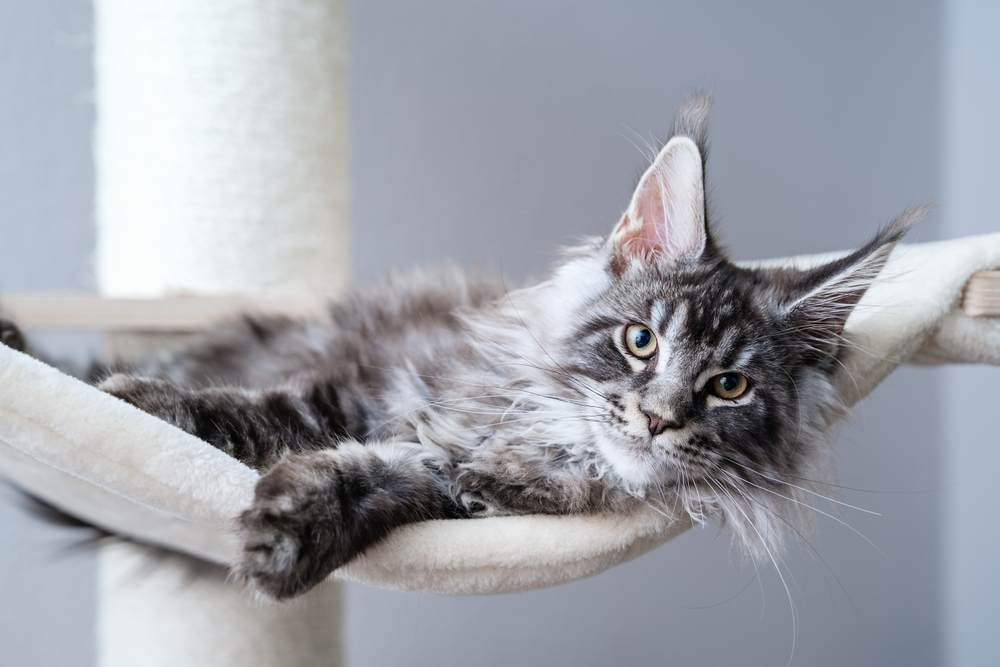
Cats reach sexual maturity at a very young age.
Female cats can become pregnant at just four months of age. If she is still living with her brothers at this age, they may mate with each other. This means that it is important to separate or neuter male and female kittens before they reach sexual maturity.
Also Read: Can Cats Sense Pregnancy?
Because cats don’t experience menopause, once they are sexually mature, they can get pregnant at any age.
How To Tell if a Cat Is Pregnant?
In the early stages of pregnancy in cats, there often isn’t a lot to see. But as the pregnancy progresses it will become more obvious. The average length of pregnancy (gestation period) in cats is 63 days or around 9 weeks. Here are the top 10 tell-tale signs your cat could be pregnant:
- She stops having heat cycles
- Increased appetite
- Sudden weight gain
- Vomiting
- Changes in behavior
- Swollen, pink nipples at around 3 weeks called “pinking up”
- Large, swollen belly from around 5 weeks
- Nesting behavior
- Pacing and being generally unsettled
- Discharge from the vulva
Also Read: Do Cats Enjoy Sex?
What To Do if You Think Your Cat Is Pregnant
If you think that your cat could be pregnant, get in touch with your veterinarian right away. Depending on how far along she is, your vet might be able to diagnose the pregnancy just by feeling her abdomen. They may also recommend an ultrasound scan or an x-ray to confirm how many kittens there are.
If your cat is found to be pregnant, you will need to decide whether you want to go ahead with the pregnancy. Bringing a litter of kittens into the world is a big decision. Your veterinarian will be able to guide you on the options available, and what is best for you and your cat.
Once you know your cat is definitely pregnant, and you’ve decided you want to continue the pregnancy, she is going to need a bit of extra TLC. Read on for everything you need to know about caring for your pregnant cat.
Also Read: Feline Genitalia Guide: What You Need To Know
1. Veterinary Care For Pregnant Cats
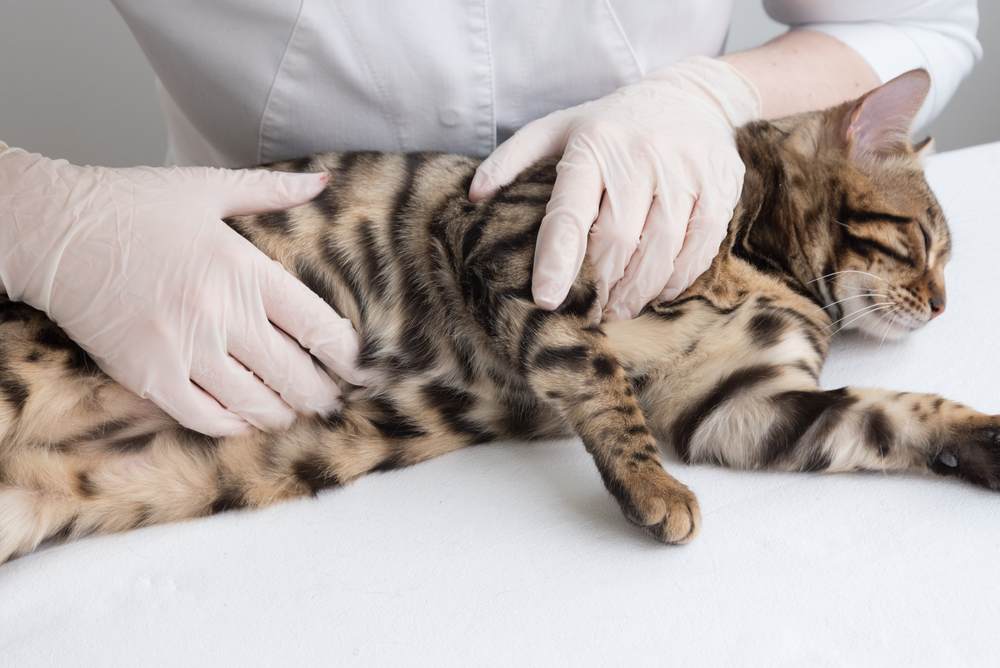
Cats that are a healthy weight shouldn’t require much veterinary attention during pregnancy, but should still pay the vet a visit.
Most pregnant cats don’t actually require a lot of veterinary care. It is a good idea to book a vet visit to make sure she is healthy and has a good body condition score. This means that she is not too fat or thin. Your veterinarian will guide you through what checkups she might need, and prepare you for what to expect during her pregnancy and birth.
Ideally, cats should be fully vaccinated and up to date with flea and worming treatments before becoming pregnant. If your cat has not had flea or worming treatment, your vet will be able to advise on which products are safe to use. Most vaccines are not safe to use during pregnancy.
Also Read: How Many Kittens Can A Cat Have?
2. Nutrition for Pregnant Cats
Now that you know your cat is definitely pregnant, it is a good time to transition her onto a diet that will meet her extra needs. Do this gradually by adding more of the new food each day for about a week to avoid a tummy upset. A high-quality kitten food is usually a good option and will provide both the mother cat and her kittens with all the nutrients they need. You can also offer the same food to the kittens once they begin to eat solid food.
While your pregnant cat is eating for two (or three, four… maybe even 10!), it’s important not to over-feed her. Aim to increase her food by about 25% as the pregnancy progresses. Be prepared to increase or decrease this, depending on her body condition score. You don’t want her to become over or underweight.
As she progresses towards her due date, the growing fetuses may start to press on her stomach. This can make it uncomfortable for her to eat too much in one go. So, it is a good idea to offer frequent smaller meals (about 4-6 times a day) to ensure she is getting enough.
Also Read: The Complete Guide To Feline Nutrition
3. Preparing the Environment for Your Pregnant Cat
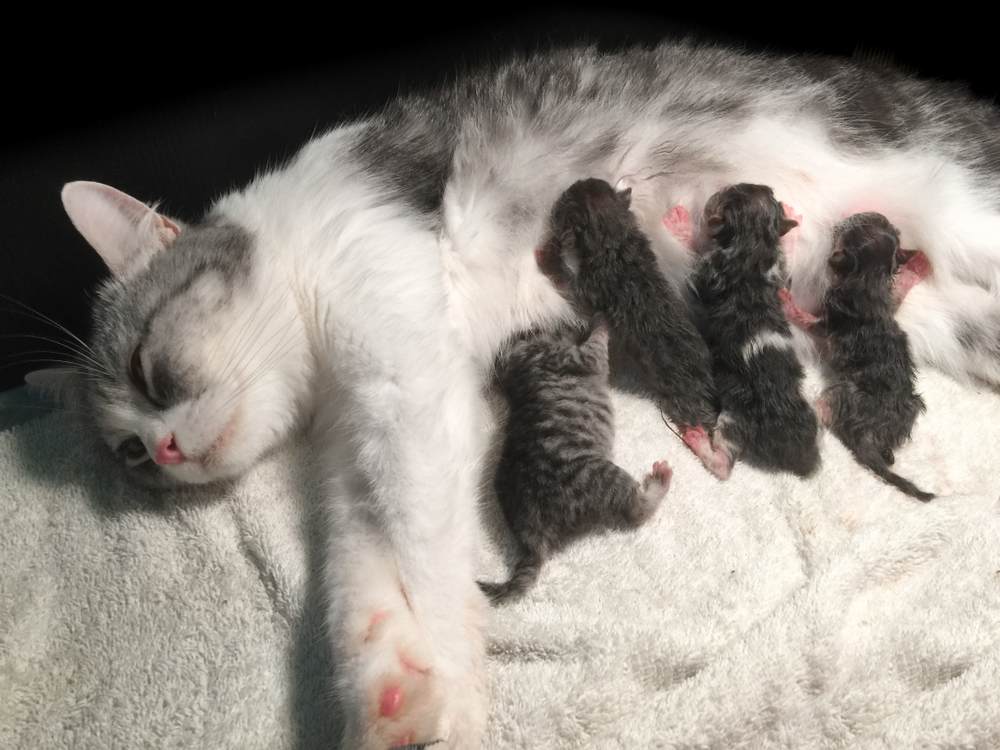
Cats often don’t need help when giving birth, but it’s important to keep a watchful eye on the birthing.
In the last few weeks of pregnancy, it is a good idea to keep your feline mom-to-be inside to make sure she is somewhere safe when she gives birth.
She will begin to look for somewhere safe to deliver her kittens – this is called nesting. You can help by providing a private, quiet place with lots of soft blankets and somewhere dark to hide away – like a cardboard box.
When the big day arrives, you may notice her becoming restless, panting, and being more vocal than usual. She may also have some discharge from her vulva. As hard as it is, try not to disturb her and keep a careful watch from a safe distance. The more relaxed she is, the better.
Most cats will give birth on their own, but if you are worried about her or any of her new kittens, then call your veterinarian right away.
Also Read: Fostering A Pregnant Cat: What You Need To Know?
How To Prevent Pregnancy in Cats
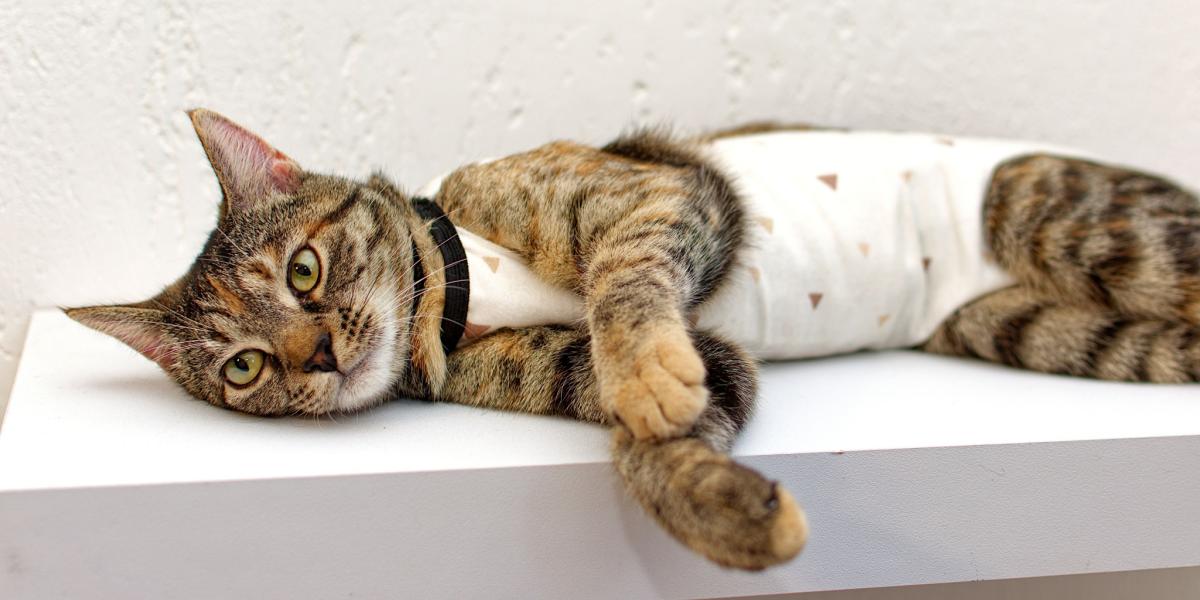
Neutering cats at the appropriate age is the best way to keep unwanted pregnancies from occurring.
The best way to prevent pregnancy in cats is by neutering them before they are sexually active. This can be as young as 4-months-old.
Neutering will not only prevent unwanted litters but reduce your cat’s risk of mammary (breast) cancer and a life-threatening womb infection called a pyometra. Speak to your veterinarian about getting your cat neutered.
Also Read: How Much Does It Cost To Spay Or Neuter A Cat?
If you don’t want your cat to have kittens, the best way to prevent it is to get her neutered. If you do decide that having a litter is the right thing for you and your cat, your veterinarian will be able to guide you on exactly what to do next.
Also Read: How To Litter Train A Kitten In 3 Simple Steps?
